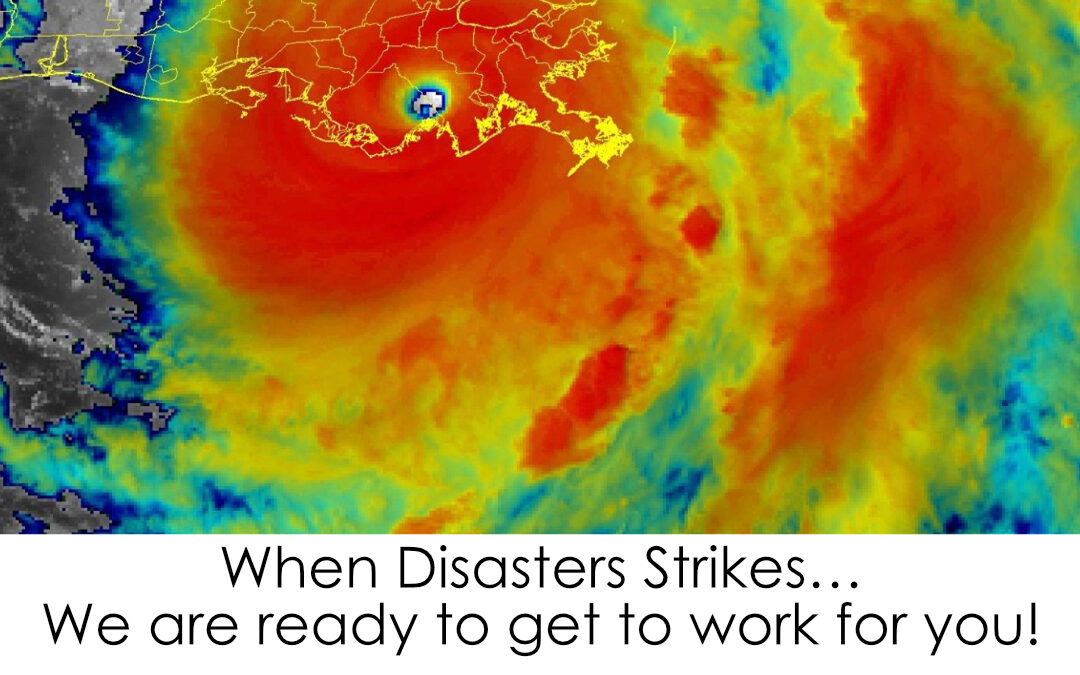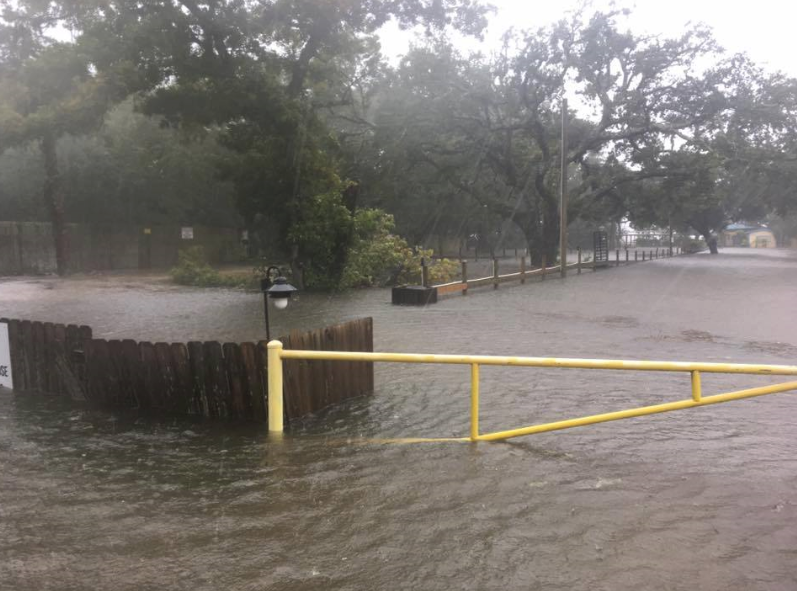First off, thanks for reading this blog article on the topic of flooding by the expert team at SWAT Public Adjusting Firm. In this blog article, we will answer the question – ”What things do you need to do if you have a Flood?” Many times in small and larger communities around the country this is a popular question families ask us. Our public adjusting team wanted to take a moment and address it now.
We know that Louisiana gets hit hard during the hurricane season. Your family and neighbors could or may have already have been hit with flooding issues in the past. But, maybe you are one of the lucky ones, in that case, you could be facing flood issues in the future. Even if you feel you live in a community with a low risk of flooding, remember that anywhere it rains, it can flood. Or more so, anywhere there is a river, lake, inlet, etc. – it can overflow and flood a community.

Remember, just because you have not experienced a flood in the past, doesn’t mean you won’t in the future. Did you know that any flood risk isn’t just based on history; it’s also based on a number of factors including rainfall, topography, flood-control measures, river flow, tidal-surge data, and changes due to new construction and development.
And trust us because we are public adjusters with years of experience and we have seen a lot in that time. Plus, you simply can look online and find so many examples of flooding happening our the country – it is really sad. So our team of professional public adjusters right here in Lousiana have come up with some ideas of things you can do before, during, and after a flood from a Public Claim Adjusters perspective.
Before a Flood – What things do you need to do if you have a Flood?
Let’s first look at what you can do to prepare for a flood ahead of time. Here are a few ideas we think are super important to consider doing before a flood ever happens, you should:
- Build an emergency kit and make a family communications plan.
- Elevate and reinforce the home, if you decide to build your home in a flood plain.
- Construct french drains which move water away from your home to keep flood waters from entering your home.
- Elevate the furnace, water heater, and electric panel in your home if you live in an area that has a high flood risk.
- Consider installing “check valves” to prevent flood water from backing up into the drains of your home.
- If feasible, construct barriers to stop floodwater from entering your commercial building and/or private residence, then go ahead and seal walls in basements with waterproofing compounds.
These basic tips on what you can do before a flood happens are very helpful and it now leads us into the next logical thought. That is what you need to think about during a flooding event in your home and/or around your property.
During a Flood – What things do you need to do if you have a Flood?
If a flood is likely in your area, you should:
- Listen to the radio, cell phone news alerts, or television for information.
- Be aware that flash flooding can occur. If there is any possibility of a flash flood, move immediately to higher ground. Do not wait for instructions to move.
- Be aware of streams, drainage channels, riverways, and other areas known to flood suddenly. Flash floods can occur in these areas with or without typical warnings such as rain clouds, tropical storms, or heavy rain.
If you must prepare to evacuate, you should do the following:
- Secure your home. If you have time, bring in outdoor furniture.
- Move essential paperwork and other items to an upper floor.
- Turn off utilities at the main switches or valves if instructed to do so.
- Disconnect electrical appliances.
- Do not touch electrical equipment if you are wet or they are in standing in water.

Driving During a Flood – What things do you need to do if you have a Flood?
The following are important points to remember when driving in flood conditions:
- Six inches of water will reach the bottom of most passenger cars causing loss of control and possible stalling.
- Twelve inches of water is enough to float many vehicles.
- Two feet of rushing water can carry away most vehicles, including sport utility vehicles (SUV’s) and pick-ups.
- Bridges can become damaged from fast moving flood waters – be careful to avoid older bridges if at alll possible.
- Do not drive through flood waters or in areas where the water may have receded. Areas where the water has receded can be fragile and susceptible to collapsing under the weight of your vehicle.
- Flood waters outside your car can be tainted with toxics – avoid consuming the water
- Pack a bag with one days worth of clothes and keep it your car(s). Use ziplock bags to keep documents dry.
After a Flood – What things do you need to do if you have a Flood?
Your home or business has been flooded. Although floodwaters may be down in some areas, many dangers still exist. Here are some things to remember in the days ahead:
- Find out if the water supply is safe to drink before consuming water. We recommend only drinking bottled water until the community has tested the local water supply.
- Avoid moving water. Currents can be faster than they might appear to be.
- Stay away from damaged areas unless your assistance has been specifically requested by police, fire, or relief organization.
- Only return home after authorities have instructed you to do so.
- Emergency workers will be assisting people in flooded areas. You can help them by staying off the roads and out of the way.
- Play it safe. Additional flooding or flash floods can occur. Listen for local warnings and information. If your car stalls in rapidly rising waters, get out immediately and climb to higher ground.
- Again, only return home only when authorities indicate it is safe.
- Roads may still be closed because they have been damaged or are covered by water. Barricades have been placed for your protection. If you come upon a barricade or a flooded road, go another way.
- If you must walk or drive in areas that have been flooded.
- Stay on firm ground. Moving water only 6 inches deep can sweep you off your feet.
- Avoid walking into standing water because it may be electrically charged from underground or downed power lines.
- Flooding may have caused familiar places to change. Floodwaters often erode roads and walkways. Flood debris may hide animals and broken bottles, and it’s also slippery. Avoid walking or driving through it.
- Be aware of areas where floodwaters have receded. Roads may have weakened and could collapse under the weight of a car.
- Stay out of any building if it is surrounded by floodwaters.
- Use extreme caution when entering buildings; there may be hidden damage, particularly in foundations.

Staying Healthy After a Flood – What things do you need to do if you have a Flood?
A flood can cause physical hazards and emotional stress. You need to look after yourself and your family as you focus on cleanup and repair.
- Avoid floodwaters; water may be contaminated by oil, gasoline or raw sewage.
- Service damaged septic tanks, cesspools, pits and leaching systems as soon as possible. Damaged sewer systems are serious health hazards.
- Listen for news reports to learn whether the community’s water supply is safe to drink.
- Clean and disinfect everything that got wet during the flood because flood waters may be contaminated.
- Mudleft from floodwaters can contain sewage and chemicals.
- Rest often and eat well.
- Keep a manageable schedule. Make a list and do jobs one at a time.
- Discuss your concerns with others and seek help. Contact Red Cross for information on emotional support available in your area.
Cleaning up & Repairing Your Home After a Flood – What things do you need to do if you have a Flood?
- Turn off the electricity at the main breaker or fuse box, even if the power is off in your community. That way, you can decide when your home is dry enough to turn it back on.
- Get a copy of the book Repairing Your Flooded Home which is available free from the American Red Cross or your state or local emergency manager. It will tell you:
- Understand how to enter your home safely and take pictures for the insurance company.
- Hire a public adjuster to you with insurance claims. They can and will contact your insurance agent to discuss claims on your behalf as you are busy cleaning up.
- Protect your home and belongings from further damage by locking up your home.
- Be prepared for mold growth in your home or business.
- Record damage to support insurance claims and requests for assistance.
- Check for gas or water leaks and how to have service restored.
- Clean up appliances, furniture, floors and other belongs.
- Local charities like the United Way and The Red Cross can provide you with a cleanup kit: mop, broom, bucket, and cleaning supplies.
- Listen to your radio for information on assistance that may be provided by the state or federal government or other organizations.
- If you hire cleanup or repair contractors, check references and be sure they are qualified to do the job.
- Be wary of people who drive through neighborhoods offering help in cleaning up or repairing your home.
Learn about SWAT Public Adjusters of SWATJob.com
Public adjusting solutions are possible with S.W.A.T., we work for you. We hope you have learned a little bit from this blog article on “What things do you need to do if you have a Flood?” and if you liked it – we have many more like this one to share with you. Remember to follow us on Facebook!
A little bit about us, we can work with people in support of any claim adjusting issues through our custom insurance claims public adjusting approach. This can be achieved through a blend of professional service offerings, which addresses the needs of the property owners first. We know this sounds confusing but when it comes to getting the outcome that you desire from the insurance company – we work on many different public adjusting strategies to get it done.
Our team also can focus on medical treatment and medical costs, helping a small business owner develop strategies, address cost drivers, and integrate solutions into its workers’ compensation while the small business is closed due to hurricane storm damage issues. So reach out to us today via our contact page to get started.